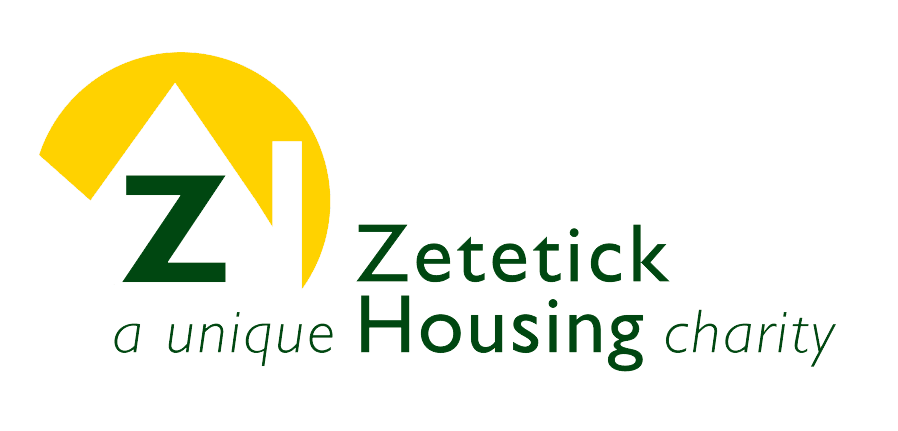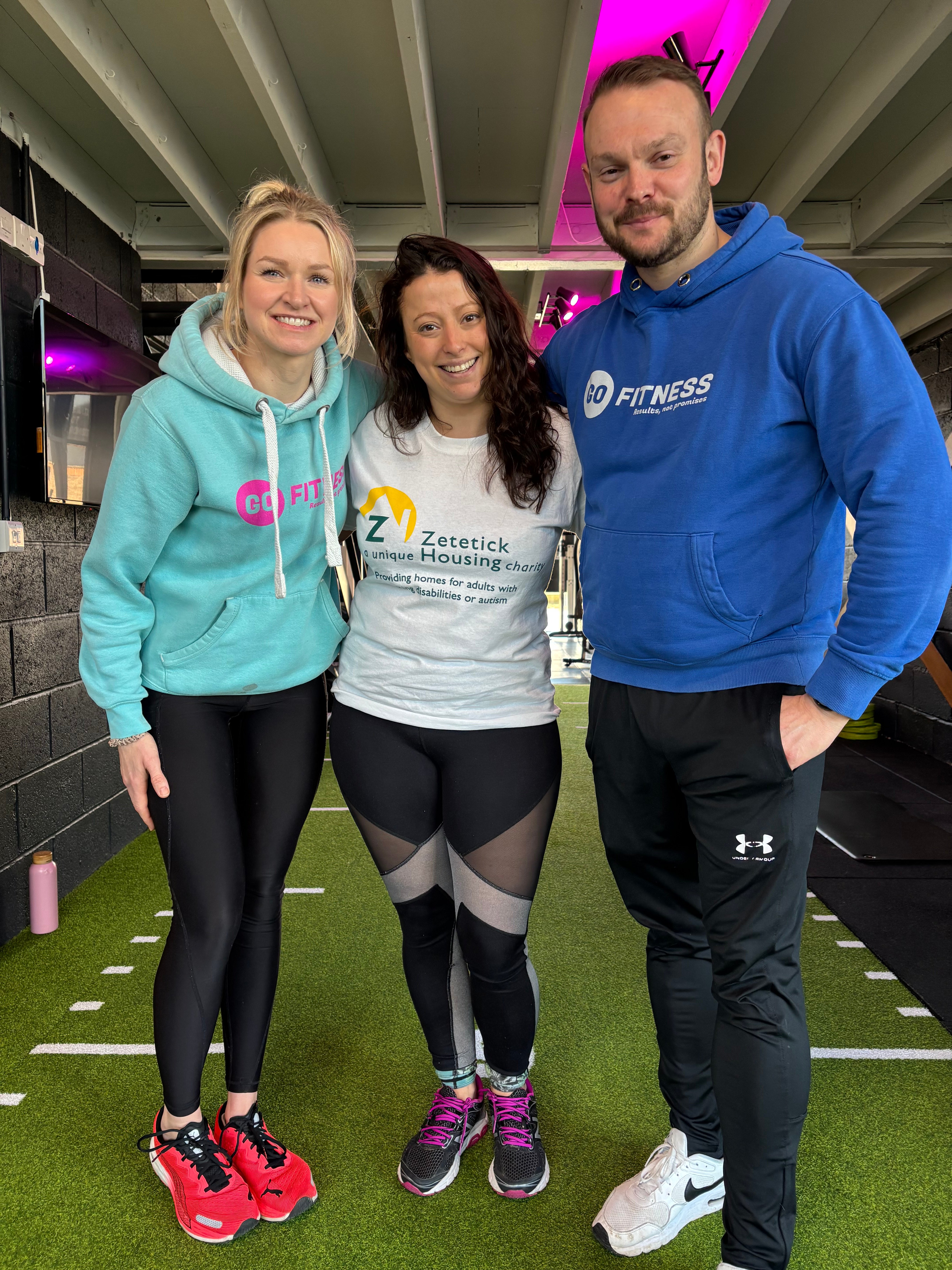Autism awareness is very important to Zetetick – almost half of our tenants (according to ZHC tenant demographics data 2021) have autism or experience autism with either a learning disability/difficulty, many of whom are women.
This Autism Awareness Month we want to highlight some of the issues surrounding autism in women and provide some helpful resources if you or someone you know would like help with diagnosis support and support for women with autism.
More than 1 in 100 people are on the autism spectrum and there are approximately 700,000 autistic adults and children in the UK. There are many women, girls and non-binary people on the spectrum and more are discovering that they are autistic than ever before. Unfortunately, autism in women is often missed or misdiagnosed due to outdated stereotypes about the disorder.
Table of Contents
Autism awareness – what exactly is autism?
According to the National Autistic Society, autism is ‘a lifelong developmental disability which affects how people communicate and interact with the world.’ It is considered a spectrum condition because it affects each individual differently – some autistic people might need more support than others to live the lives they want to lead. Like everyone, those with autism have their own strengths and weaknesses.
Autistic people may share the following difficulties:
- Social communication and social interaction challenges
- Repetitive and restrictive behaviour
- Over- and under-sensitivity to light, sound, taste or touch
- Highly focused interests or hobbies
- Extreme anxiety
- Meltdowns and shutdowns
All these traits, as well as many not listed here, are present in endless different combinations in each individual on the spectrum. You can find more information here.
Autism in women – does ASD present differently in women and girls?

There is a lack of research into female experiences of autism, however, more recent research suggests that current diagnosis of autism and stereotypical views of autism are based on male experiences and this in turn has led to either women being diagnosed with autism later in life, misdiagnosed or not diagnosed at all.
Autistic characteristics in women and girls may differ from those of other autistic people. For example, women are more likely than men to ‘mask’ or ‘camouflage’ their autistic traits, so they might appear to have fewer social difficulties. This is particularly common among females at the lower support need end of the spectrum.
Common forms of masking include: forcing yourself to make eye contact during conversations, preparing jokes or phrases ahead of time to use in conversation, mimicking the social behaviour of others and imitating expressions and gestures. This behaviour, however, comes at its own cost as individuals tend to experience anxiety and become overwhelmed. Masking and a lack of diagnosis also prevent autistic women and men from being correctly recognised as being vulnerable when attempting to apply for suitable housing.
Some of the core characteristics of autism are having ‘repetitive behaviours’ and highly focused interests. Stereotyped examples include rocking backward and forwards, and a fascination with trains. However, in autistic women and girls these behaviours and interests might be similar to those of non-autistic women and girls and deemed more “acceptable”, such as twirling hair and reading books. These traits could therefore go unnoticed.
Women and girls may be misdiagnosed with conditions other than autism, such as mental health issues, as doctors and other healthcare professional can lack knowledge about how autism may present differently in women and girls. The process of diagnosis may not be as sensitive to characteristics more commonly found in autistic women and girls, as some tools used to diagnose are designed to identify autistic characteristics that may be more common in autistic men and boys.
It’s great to see campaigns highlighting this issue and helping women to feel less isolated. The National Autistic Society have recently created the ‘Now I Know’ campaign, which highlights the experience of late-diagnosed autistic women and non-binary people from across the country. You can see the powerful imagery and campaign films here: https://www.autism.org.uk/what-we-do/campaign/our-new-campaign/now-i-know-campaign
Ultimately, whilst today there is more autism awareness, there is still much research to be done into the differences in diagnosis of autism between men and women and the differences in experiences of autistic men and women.

Support and resources
Please see below for some of the resources available if you or someone you know would like further support:
- Facebook group – for women who have been diagnosed or are waiting to be diagnosed, including self-diagnosed, with autism: https://www.facebook.com/groups/688411908330520/
- NHS – How to get diagnosed as autistic: https://www.nhs.uk/conditions/autism/getting-diagnosed/how-to-get-diagnosed/
- NHS – What happens during an autism assessment: https://www.nhs.uk/conditions/autism/getting-diagnosed/assessments/
- National Autistic Society – the NAS have some amazing guides to help you throughout the whole diagnostic process: https://www.autism.org.uk/advice-and-guidance/topics/diagnosis
- Autism Services Directory – the Directory helps autistic people, their families and the professionals who work with them to find local and national services: https://www.autism.org.uk/directory
- National Autistic Society Branches – search for a volunteer-led branches throughout the country (plus online branches), which run support, information and social activities for people with autism: https://www.autism.org.uk/what-we-do/branches
- National Autistic Society Online Community – a place for autistic people and their families to meet like-minded people and share their experiences: https://www.autism.org.uk/what-we-do/community
- Mencap – provide a range of useful contacts, including helplines: https://www.mencap.org.uk/learning-disability-explained/conditions-linked-learning-disability/autism-and-aspergers-syndrome
Autism Awareness – further reading
If you’d like to read some more of our articles relating to autism, please see below:





 Boost Your Estate Agency: Join Hike4Homes 2025-Show You Care
Boost Your Estate Agency: Join Hike4Homes 2025-Show You Care Giving: experience the joy of giving for free
Giving: experience the joy of giving for free Charity Donations | 3 reasons for bountiful giving
Charity Donations | 3 reasons for bountiful giving Life partners - Rosie's story
Life partners - Rosie's story Meet Zetetick trustees - An interview with Natasha
Meet Zetetick trustees - An interview with Natasha